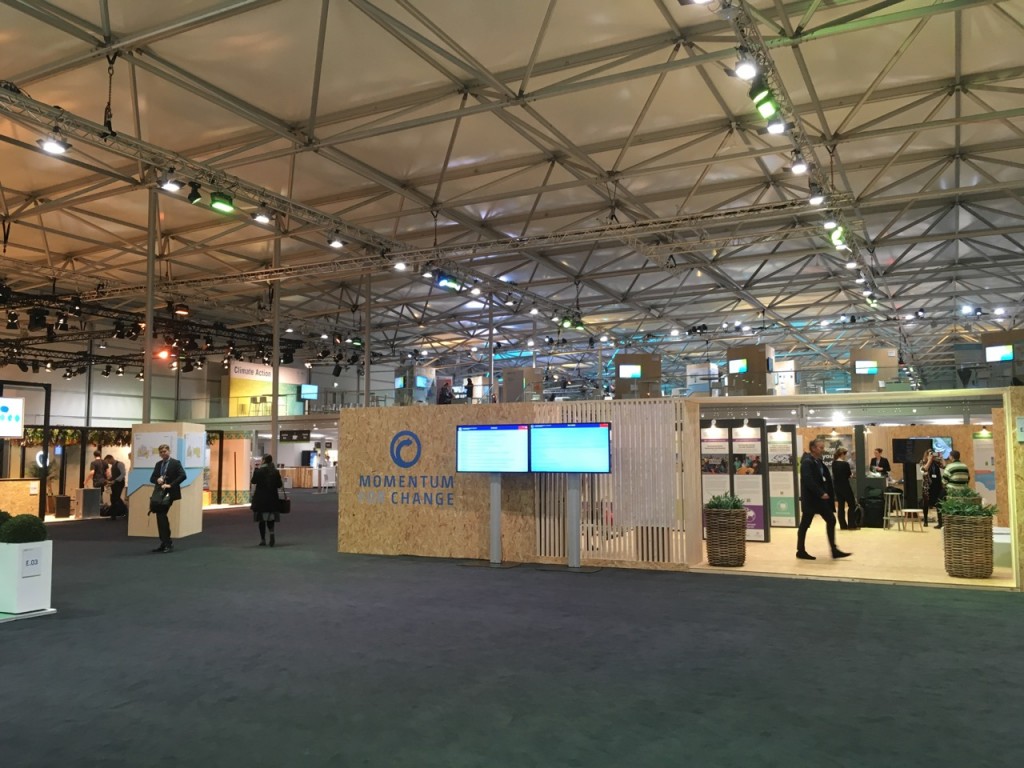Bula Vinaka! The 23rd UNFCCC Conference of the Parties started in Bonn today, presided over by Prime Minister Frank Bainimarama of Fiji. Over 20,000 people are expected to attend what is being called the “Pacific COP”, the first of these meetings to be hosted by one of the island nations most vulnerable to storms and sea-level rise. The COP 23 President focused on several themes during his opening statement: urgency, “talanoa” (understanding and respect), involvement of non-parties, and assistance to those affected by climate change. These themes reflect the goals of this COP, which is expected to be a more technical meeting focusing on implementing broader goals set at prior meetings. This work will lead up to the 2018 meetings, in which Paris signatories have committed to take stock of their collective efforts and progress.


Today I attended an event hosted by Climate Action Network-International on the “Yardsticks for Success” of the Pacific COP 23. The panel emphasized two parts of the work being done at the COP this year.
First, COP 23 aims to complete the design of the 2018 Talanoan Dialogue (Facilitative Dialogue). This is a process over the next year for Parties to collectively take stock of their efforts toward reaching their Paris goals and to inform the preparations of new nationally determined contributions for COP 24. The Fijian presidency has taken a strong hand in shaping this process already, renaming it using Talanoa – a traditional word used in Fiji and the Pacific to indicate inclusive and transparent dialogue meant to build empathy and trust. The dialogue will address the questions of: ‘where are we?’, ‘where do we want to go?’, and ‘how do we get there?’ in the months leading up to COP 24. The goal is to assess whether Parties are on track to meet their NDCs and to reevaluate their commitments, which are considered to be well-under the reductions needed to meet global climate goals.
Climate finance is another theme of the work this year. Fiji has emphasized the need to establish financing for “Loss and Damage” due to climate change, with a focus on natural disasters. (The logo for the conference shows a small island being submerged by a cyclone-shaped wave). Delegates also aim to increase the transparency around these funds, including agreeing on accounting conventions that reflect the climate relevance of funded projects. We’ll hopefully get to see how the process stands at the end of week 1 before we leave, and Sam, Shivani, and Chris will get to see what comes out of the second week of negotiations.
Finally, the Fijian focus on engaging non-Parties and subnational actors is particularly interesting in light of the unusual US participation in the negotiations this year. The US has sent a formal delegation to the negotiations, which it is still a party to despite President Trump’s announcement of his intention to withdraw from the agreement in 2020. The Fijian presidency appointed California Governor Jerry Brown as a special advisor to COP 23, who notably launched “America’s Pledge” with Michael Bloomberg in July. The subnational US delegation seems likely to be a significant presence at the meetings. The US Federal Government is not hosting a pavilion for the first time this year: instead the “We Are Still In” coalition is hosting the US Climate Action Center, financed by and highlighting US subnational actors. It will be interesting to watch how these two groups participate in the meetings and how other countries respond to the two groups over the course of the week.
Thanks for the update, Jennifer. Regarding climate finance and the “we are still in” movement, and Bloomberg’s involvement in particular, I’ll be interested to hear whether any of the finance discussions involve discussion of funding by entities other than state signatories to the agreement.
Thanks Eric, that’s super interesting. The non-national US events start on Thursday, and we’re planning to attend many of those meetings on Thursday and Friday. There’s a session about US non-federal climate finance on Saturday (with Senator Jeff Merkley and Governor Terry McAuliffe) that we’ll sadly miss while we’re traveling back, but I’m sure they’ll talk about it more broadly in the earlier sessions. It will also be interesting to see how seriously other participants take this possibility and whether it comes up in the main talks.